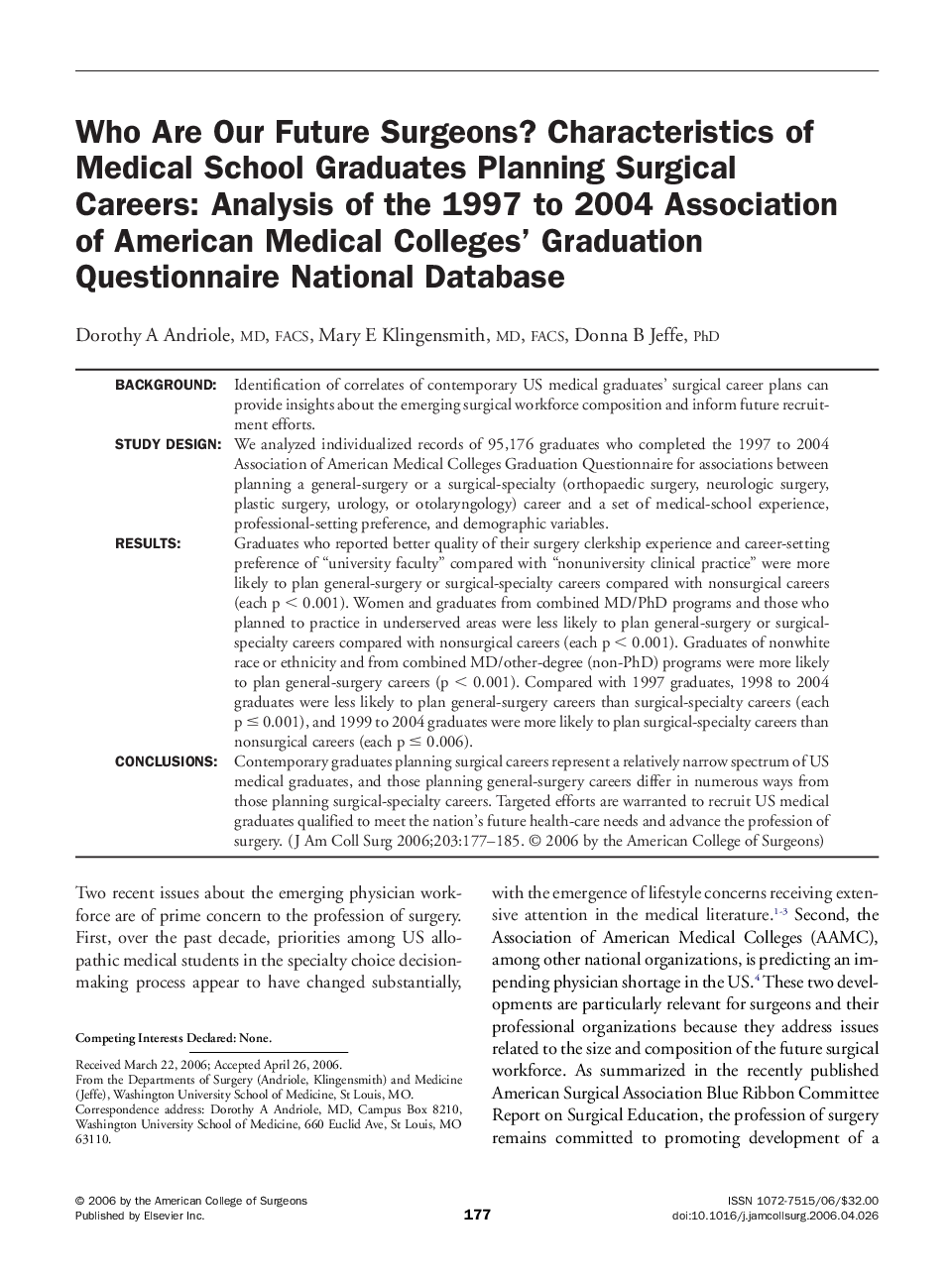| کد مقاله | کد نشریه | سال انتشار | مقاله انگلیسی | نسخه تمام متن |
|---|---|---|---|---|
| 4295784 | 1612336 | 2006 | 9 صفحه PDF | دانلود رایگان |

BackgroundIdentification of correlates of contemporary US medical graduates’ surgical career plans can provide insights about the emerging surgical workforce composition and inform future recruitment efforts.Study DesignWe analyzed individualized records of 95,176 graduates who completed the 1997 to 2004 Association of American Medical Colleges Graduation Questionnaire for associations between planning a general-surgery or a surgical-specialty (orthopaedic surgery, neurologic surgery, plastic surgery, urology, or otolaryngology) career and a set of medical-school experience, professional-setting preference, and demographic variables.ResultsGraduates who reported better quality of their surgery clerkship experience and career-setting preference of “university faculty” compared with “nonuniversity clinical practice” were more likely to plan general-surgery or surgical-specialty careers compared with nonsurgical careers (each p < 0.001). Women and graduates from combined MD/PhD programs and those who planned to practice in underserved areas were less likely to plan general-surgery or surgical-specialty careers compared with nonsurgical careers (each p < 0.001). Graduates of nonwhite race or ethnicity and from combined MD/other-degree (non-PhD) programs were more likely to plan general-surgery careers (p < 0.001). Compared with 1997 graduates, 1998 to 2004 graduates were less likely to plan general-surgery careers than surgical-specialty careers (each p ≤ 0.001), and 1999 to 2004 graduates were more likely to plan surgical-specialty careers than nonsurgical careers (each p ≤ 0.006).ConclusionsContemporary graduates planning surgical careers represent a relatively narrow spectrum of US medical graduates, and those planning general-surgery careers differ in numerous ways from those planning surgical-specialty careers. Targeted efforts are warranted to recruit US medical graduates qualified to meet the nation’s future health-care needs and advance the profession of surgery.
Journal: Journal of the American College of Surgeons - Volume 203, Issue 2, August 2006, Pages 177–185